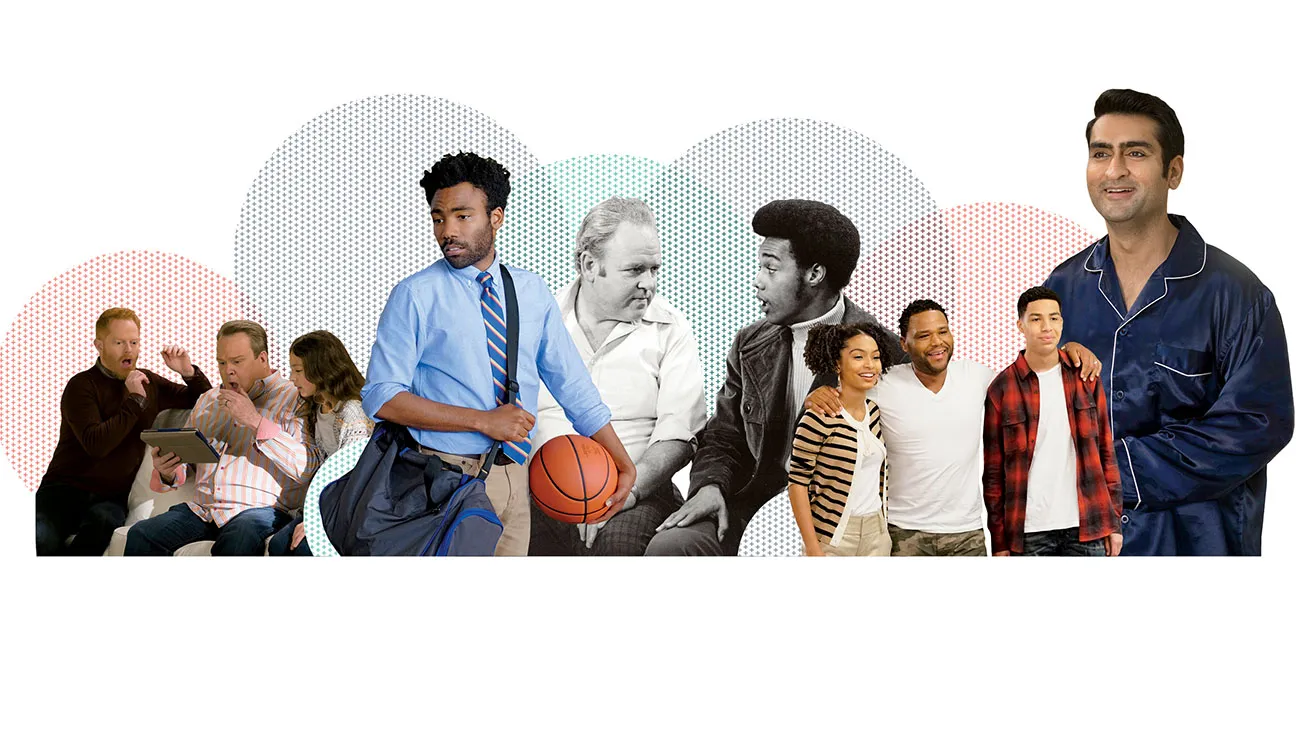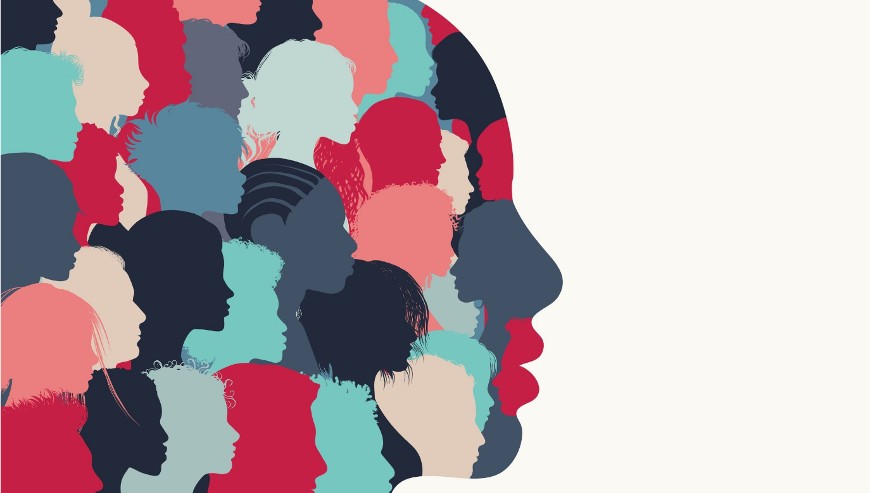
Welcome to the world of comedy, a realm where laughter is the universal language and humor is the currency. Comedy shows have always been a cornerstone of entertainment, offering an escape from reality and a chance to laugh at life’s absurdities. But beyond the punchlines and pratfalls, comedy can also be a powerful platform for expressing diverse perspectives, fostering understanding, and promoting inclusion.
Let’s rewind the reels and delve into the historical overview of diversity in comedy shows. Once upon a time, the comedy landscape was dominated by a monotonous array of similar faces and voices. For decades, comedy was an exclusive club, primarily featuring white male performers. However, as society progressed, so did the comedy industry. A shift began, opening the doors for performers of different races, genders, cultures, and orientations to take the stage, and truly diversify the comedy landscape. This vibrant tapestry of humor started to reflect the real world, making comedy shows not just a place for laughs, but also a space for representation and inclusion.
Historical Overview of Diversity in Comedy Shows
From the early days of stand-up, comedy has been a reflection of society’s attitudes and beliefs. Yet, this mirror often only reflected a narrow slice of the population. Minority groups were either underrepresented or portrayed through harmful stereotypes. It was a time when comedy was not just a laugh factory, but also a factory of stereotypes and cliches. This bias was not just confined to the stage, but was evident in the audience as well, with comedy shows predominantly catering to a homogenous demographic.
Thankfully, as the wheels of time turned, the tides began to change. A fresh wave of comedians emerged, challenging the status quo and using their unique voices to broaden the scope of comedy. Comedians like Richard Pryor, Joan Rivers, and George Lopez became trailblazers, breaking barriers and expanding the definition of humor. They challenged stereotypes, questioned biases, and proved that comedy has no color, gender, or creed. Their success proved that laughter, like love, knows no boundaries.
From the advent of multicultural sketch shows like ‘In Living Color’ to the success of stand-up specials by comedians of diverse backgrounds, comedy has come a long way. Today, we see a more representative comedy scene, where a variety of voices are not just heard, but celebrated. Now, laughter resonates across the globe, transcending barriers and bringing people closer through shared humor. Comedy shows have evolved from being mere entertainment to becoming a beacon of diversity and inclusion.

Representation Matters: Role of Diversity in Comedy
Comedy, in its essence, is a portrayal of life and its complexities. It serves as a mirror, reflecting societal norms, behaviors, and expectations. Therefore, it is paramount that this reflection is accurate and inclusive. Diversity in comedy goes beyond mere casting of actors from different ethnic, racial, or social backgrounds. It means representing their narratives, experiences, and viewpoints with authenticity and sensitivity.
One might wonder, why does representation in comedy matter? The answer is simple. Comedy has the power to shape perceptions, influence attitudes, and challenge stereotypes. Diverse representation in comedy can help create a more inclusive society by celebrating differences and promoting understanding. Moreover, it makes content more relatable and engaging for a wider audience. “Diversity in comedy allows for a broader range of stories, perspectives, and experiences to be told, thereby making the content more appealing to a diverse audience,” says comedy writer and performer, Jane Doe.
Challenges in Fostering Diversity and Inclusion in Comedy Shows
Fostering diversity and inclusion in comedy shows is not without its challenges. One of the main obstacles is the underlying systemic bias and discrimination within the industry. This often manifests in tokenism, where individuals from underrepresented groups are included superficially just to suggest diversity. Such practices undermine the true essence of diversity and inclusion.
Furthermore, there is often a lack of understanding or sensitivity towards different cultures, experiences, and identities. This can result in comedy that is offensive or undermines the experiences of certain groups. “There is a fine line between comedy that highlights societal issues and comedy that exploits them. The former can be a powerful tool for change, while the latter can perpetuate harmful stereotypes and biases,” explains comedy scriptwriter, John Doe.
Another challenge is the audience’s resistance to change. As humans, we are creatures of habit and often find comfort in the familiar. Hence, introducing diverse narratives and characters in comedy can sometimes meet resistance. Nevertheless, it is a challenge that must be faced to foster a more inclusive and understanding society.
In conclusion, while diversity and inclusion in comedy shows face many challenges, they are integral for creating more impactful content. They help to broaden the appeal of comedy shows, foster understanding, and challenge harmful stereotypes. Moving forward, it is important that the comedy industry continues to strive for diversity and inclusion.
Despite the increasing recognition of the importance of diversity and inclusion in comedy shows, there are still some significant challenges that need to be addressed. One of the main obstacles is the stereotyping and typecasting that often happens in the industry. It is not uncommon for individuals from diverse backgrounds to be cast in roles that perpetuate harmful stereotypes or reduce their characters to one-dimensional caricatures.
Another issue is the lack of opportunities for diverse talents to be discovered and nurtured. Many comedy shows are still dominated by a select group of individuals, often leaving little room for new voices to be heard. This issue is compounded by the gatekeeping that often occurs in the industry, with decision-makers often being reluctant to take risks on unknown or unproven talents.
Case Studies: Successful Implementation of Diversity and Inclusion in Comedy Shows
Despite these challenges, there have been several comedy shows that have successfully incorporated diversity and inclusion into their programming. For instance, the sitcom “Brooklyn Nine-Nine” has been widely praised for its diverse cast and its nuanced portrayal of LGBTQ+ characters and issues.
Another example is the sketch comedy show “Key & Peele”, which has been lauded for its insightful and humorous exploration of racial and social issues. The show’s creators and stars, Keegan-Michael Key and Jordan Peele, have often discussed the importance of diversity and inclusion in their work.
These examples show that diversity and inclusion in comedy shows is not only possible but can also lead to a richer and more nuanced storytelling.
Conclusion: The Future of Diversity and Inclusion in Comedy
As audiences become increasingly diverse, the demand for diverse representation in comedy shows is likely to continue growing. It is clear that diversity and inclusion can lead to more complex and interesting stories, and can help comedy shows to better reflect the realities of modern society.
However, to truly foster diversity and inclusion in comedy shows, it is essential to tackle the challenges of stereotyping, typecasting, and gatekeeping. This requires a concerted effort from all those involved in the comedy industry, from producers and writers to casting directors and performers.
The future of comedy lies in its ability to be inclusive, diverse, and representative of all voices, and it is crucial that the industry rises to meet this challenge.
FAQ
Why is diversity and inclusion important in comedy shows?
Diversity and inclusion in comedy shows provide representation to a wide range of cultures, experiences, and identities. This not only enriches the content by broadening the spectrum of humor, but also helps in creating a more empathetic and understanding audience. Moreover, it dismantles stereotypes and promotes equality in the entertainment industry.
What are the challenges in fostering diversity and inclusion in comedy shows?
Some challenges include breaking away from traditional comedy norms that cater to a specific demographic, overcoming bias in the audience and within the industry, and ensuring authentic representation without resorting to harmful stereotypes or cultural appropriation.
Can you give examples of comedy shows that have successfully implemented diversity and inclusion?
Shows like “Brooklyn Nine-Nine,” “The Daily Show,” and “Saturday Night Live” have successfully incorporated diversity and inclusion. They feature diverse casts and writers who create content that resonates with a wide range of audiences, thereby setting a precedent in the industry.
How has the representation of diversity in comedy shows evolved historically?
Historically, comedy shows lacked diversity and were often centered around a specific demographic. However, over time, the representation of diversity has significantly improved, with more people of color, women, and individuals from the LGBTQ+ community being included.
How can comedy shows enhance their efforts towards diversity and inclusion?
Comedy shows can enhance their diversity and inclusion efforts by diversifying their cast and writers’ room, ensuring authentic representation, addressing contemporary social issues, and creating a safe environment where everyone feels valued and heard.
What is the future of diversity and inclusion in comedy shows?
The future of diversity and inclusion in comedy shows looks promising. There is growing awareness and demand for content that truly represents the diverse world we live in. Comedy shows are expected to lead this change by becoming more inclusive, breaking stereotypes, and promoting equality.
Leave a Reply